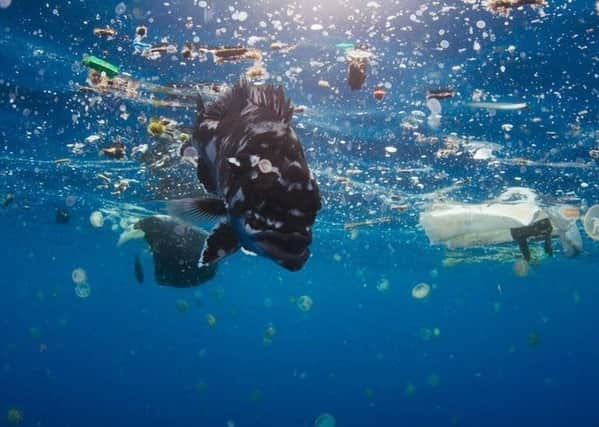War on plastic: The '˜Blue Planet Effect'


Government ministers have pricked their ears up, some of the world’s biggest companies have put priorities before profit, and the public has shown its thirst for change.
Dubbed the ‘Blue Planet Effect’, wave after wave of measures against the use of disposable plastic have been announced since the BBC programme brought home just how serious the problem with plastic has become.
Advertisement
Hide AdAdvertisement
Hide AdMillions of viewers were shocked after hearing about the Pacific Garbage Patch, a vast swathe of rubbish larger than the state of Texas, and of microplastics finding their way into our foodchain via the fish we buy from the supermarkets.
The Queen has since announced a ban on single-use plastics on the Royal estate, while politicians, businesses, and households are also waking up to the dilemma.
There are now plans to get rid of avoidable plastic waste within the next 25 years.
It could be argued, however, the response is not entirely altruistic. This year, China decided to no longer accept plastic waste from foreign countries. Britain reportedly shipped around two thirds of its plastics there – around 500,000 tons – each year.
Advertisement
Hide AdAdvertisement
Hide AdRegardless, a number of organisations and firms have followed suit. Even as The Gazette prepared to launch its campaign to help stop plastic bottles washing up on the Fylde coast’s beaches, announcements came thick and fast.
The BBC said it will end its use of disposable plastics by 2020, scrapping plastic cups and cutlery by the end of this year and stripping plastic from canteens next year, with a trial coffee cup recycling scheme also introduced.
Several large coffee chains are offering incentives to customers using their own re-usable takeaway cups, while Costa has signed up to the Gazette-backed ReFILL campaign – posting stickers in its branch windows telling passers-by they can refill their bottles with tap water for free.
Fast food giant McDonalds is phasing out its plastic straws and trialling paper ones instead – which they will put behind the counter for diners to request.
Advertisement
Hide AdAdvertisement
Hide AdIts UK chief executive Paul Pomroy also said he hopes a solution to the problem of recyclable lids ‘within the next year’.
Similar measures were announced by Wetherspoons and Pizza Express as a different campaign – Refuse the Straw – gathered pace.
Zoe Bowley, managing director at Pizza Express, which has a branch in Church Street in Blackpool town centre, said: “We received a letter in 2017 from one of our customers, Ava, aged five, highlighting this impact and it spurred us on to continue working hard to significantly reduce the amount of plastic waste through our restaurants.”
Stephanie Wyatt from LOVEmyBEACH, which runs ReFILL, said: “Blue Planet 2 impressed audiences with the diversity and beauty of life in our oceans but at the same time it also reflected on the risks it faces; most notably the impact of humans and our excessive use of plastic; stating there will be more plastic in the ocean than fish by 2050. Blue Planet II has brought our work into the limelight and the general public are eager to make changes to their lives to ensure that our oceans are protected.”